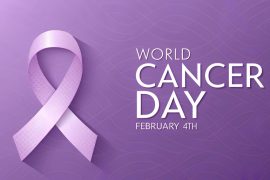Cancer is a disease in which cells divide and multiply uncontrollably, invading nearby tissues and organs. This happens when mutations are caused in the genes that control the growth of the cells. Cancer occurs when the cells grow uncontrollably, collectively forming a mass of tissue called a tumor. These tumors can either be cancerous or non-cancerous.
Oral cancer, also known as mouth cancer or oral cavity cancer, falls under a category of cancers called Head and Neck Cancers. Oral cancer occurs when there is a cancerous growth in the mouth or the oral cavity. Oral cancer usually occurs in the lips, tongues, cheeks, throat, hard and soft palate, the roof of the mouth, and on the floor of the mouth (under the tongue). People above the age of 40 are more susceptible to oral cancer.
Oral cancer usually begins in the squamous cells (flat, thin cells in the lining of the lips and inside the mouth). A majority of oral cancers are diagnosed to be Squamous Cell Carcinoma.
What are the Symptoms of Oral Cancer?
The diagnosis and treatment of oral cancer would be easier if one is aware of the symptoms and the signs of oral cancer. Some of the most common symptoms of oral cancer are:
- A sore in the mouth or on the lip that doesn’t heal for a long time
- Mass or lumpy growth anywhere in the mouth
- A white or reddish patch inside the mouth
- Unexplained bleeding
- Loose teeth
- Pain or difficulty in swallowing
- Earache
- Mouth ache
- A lump in the neck
- Numbness/tenderness in any area of the mouth, face, or neck
- Sore throat
- Stiffness or pain in the jaw
- Drastic weight loss
Looking out for these symptoms and getting them checked immediately would help in effectively treating oral cancer. It is important to make an appointment with your doctor or dentist if you have one or more of these symptoms. Some of these symptoms may indicate another condition/disease/illness apart from oral cancer. Your doctor will look into the symptoms and rule out every other possibility before recommending tests for oral cancer.
How is Oral Cancer Diagnosed?
There are several procedures involved in diagnosing Oral Cancer. The first step is to gauge the reason behind the symptoms to rule out other underlying conditions and ensure that the symptoms are due to oral cancer. Once the patient has been diagnosed with oral cancer, the doctor might perform a further diagnosis to determine the type of cancer – invasive/non-invasive and the extent to which it has spread. Some of the tests and procedures used to diagnose oral cancer include:
Physical Exam: Your doctor will closely examine your lips and mouth to check for abnormalities, especially the roof and floor of your mouth, the back of your throat, your tongue, gums, cheeks, and the lymph nodes on the neck.
Biopsy: In case of a suspicious/infected area in the mouth, your doctor may take a sample of your tissue using a cutting tool or a needle for laboratory testing. This procedure is known as a biopsy.
Once the patient is diagnosed with oral cancer, the doctor will determine the extent (stage) of oral cancer, and how much it has spread. To determine this, the doctor may turn to one of these procedures:
Endoscopy: During this procedure, the doctor may insert a small camera with a light attached to a tube down your throat to determine how cancer has spread beyond the mouth.
X-Ray: The doctor might also suggest an x-ray to check if the cancerous cells have spread to the chest or lungs.
CT scan: The Computed Tomography (CT) scan is an imaging technique that uses a series of x-ray images to get detailed images of the body. The CT scan helps reveal any tumors in the mouth, throat, neck, and lungs.
PET scan: The Positron Emission Tomography (PET) scan is an imaging technique that uses a special dye that contains radioactive tracers. This is to determine if cancer has traveled to the lymph nodes or other organs.
MRI scan: Magnetic Resonance Imaging (MRI) uses a large magnet to generate images of the body using radio waves. This method also helps to determine the extent to which cancer has spread.
Once diagnosed, Oral cancer is determined in 4 stages.
Stage I: Where the tumor is 2cm or smaller and cancer hasn’t spread to the lymph nodes.
Stage II: Where the tumor is between 2-4cm, and cancer hasn’t spread to the lymph nodes.
Stage III: Where the tumor is larger than 4cm but hasn’t spread to the lymph nodes; or tumor is of any size but has spread to one lymph node.
Stage IV: Where the tumors are in any size and the cancerous cells have spread to the lymph nodes, nearby tissues, and other organs.



Oral Cancer Treatment
Depending on the location, stage, and nature of oral cancer, the treatment options will differ. Based on the analysis of your doctor, you may have to undergo one form of treatment or a combination of cancer treatments. Some of the most common and effective treatment options are:
Surgery: If the cancer is in an early stage, the surgeon may cut off the tumor and a margin of the healthy tissues that surround that area to ensure that all the cancerous cells have been removed. Minor surgery is required for small cancerous cells, but, larger tumors require an extensive procedure.
Radiation Therapy: This therapy uses high-energy radiation beams at the tumor. If the cancer is in an advanced stage, the doctor might use a combination of chemotherapy and radiation therapy.
Chemotherapy: This treatment uses chemicals/drugs to kills cancerous cells. The drug is usually administered through an Intravenous (IV) line or orally.
Targeted Therapy: This therapy treats mouth cancer by altering specific aspects of the cancerous cells that interfere with their growth.
Immunotherapy: This treatment uses your immune system to fight cancer cells. Cancerous cells produce proteins that bind the cells in the immune system. This therapy works by interfering with that process.
Though there are several treatment options to treat oral cancer, the best way to fight it would be by reducing the risk and following a healthy oral regimen. Early detection is the key to fight any disease. So be aware of the symptoms and check with your doctor as soon as you see any signs that may develop into oral cancer.




